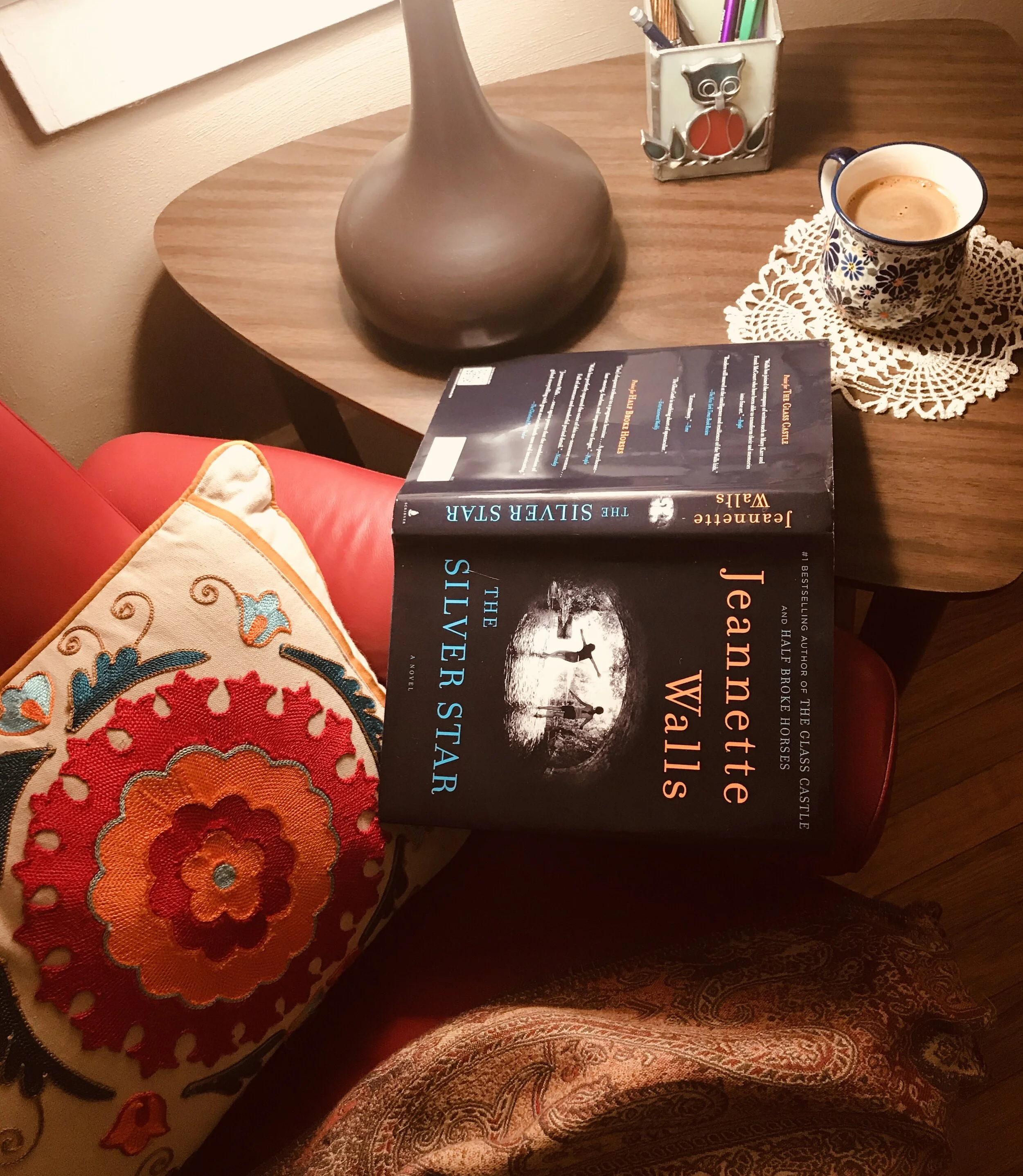Like three women, which I recently wrote about, The Silver Star is a book I got absorbed in from the get-go. If you feel like curling up in a comfortable chair with a compelling story, or if you’re looking for a gift for someone who loves novels that read like memoirs, you might want to take a look at this title.
It’s by Jeanette Walls, the author of the bestselling memoir The Glass Castle. Herself a child of loving parents who nevertheless refused to don the mantle of adulthood, Walls and her siblings had to fend for themselves from an early age. So when Walls turns her hand to fiction in The Silver Star, her writing rings true to life. Narrated by twelve-year-old Bean, the story begins when Bean and her fifteen-year-old sister, Liz, find themselves on their own, their astonishingly immature mother having taken off for a few months to chase her latest dream.
As soon as the sisters suspect that child protective services is taking an interest in them, they gather the cash their mother left them and board a bus to Virginia, where their only other known relative, Uncle Tinsley, lives. His house isn’t just a house—it’s the family mansion, even though it’s falling down around his ears. Eccentric and used to his own company, he takes grudgingly takes his nieces in.
Bean thrives in Virginia. The trouble starts when the sisters go to work part time for Jerry Maddox, local bully and the foreman of the mill. Liz, whom Bean adores, gradually grows moody and withdrawn. After Bean learns the truth about her sister’s troubles, the two decide fight the abuse of power that has infected not only Liz, but the entire community—with convoluted and surprising results.
The Southern eccentricity in The Silver Star isn’t overdone because families everywhere, however fragmented, often come together to protect their own. Bean’s voice is as engaging and authentic as any precocious, observant twelve-year-old voice can be. The ways in which she and Liz band together, making plans—sometimes naïve, sometimes savvy—to survive and thrive, drive the narrative forward. By the time I finished the book, even though it deals with the abuse of power, I felt better about the human race.
